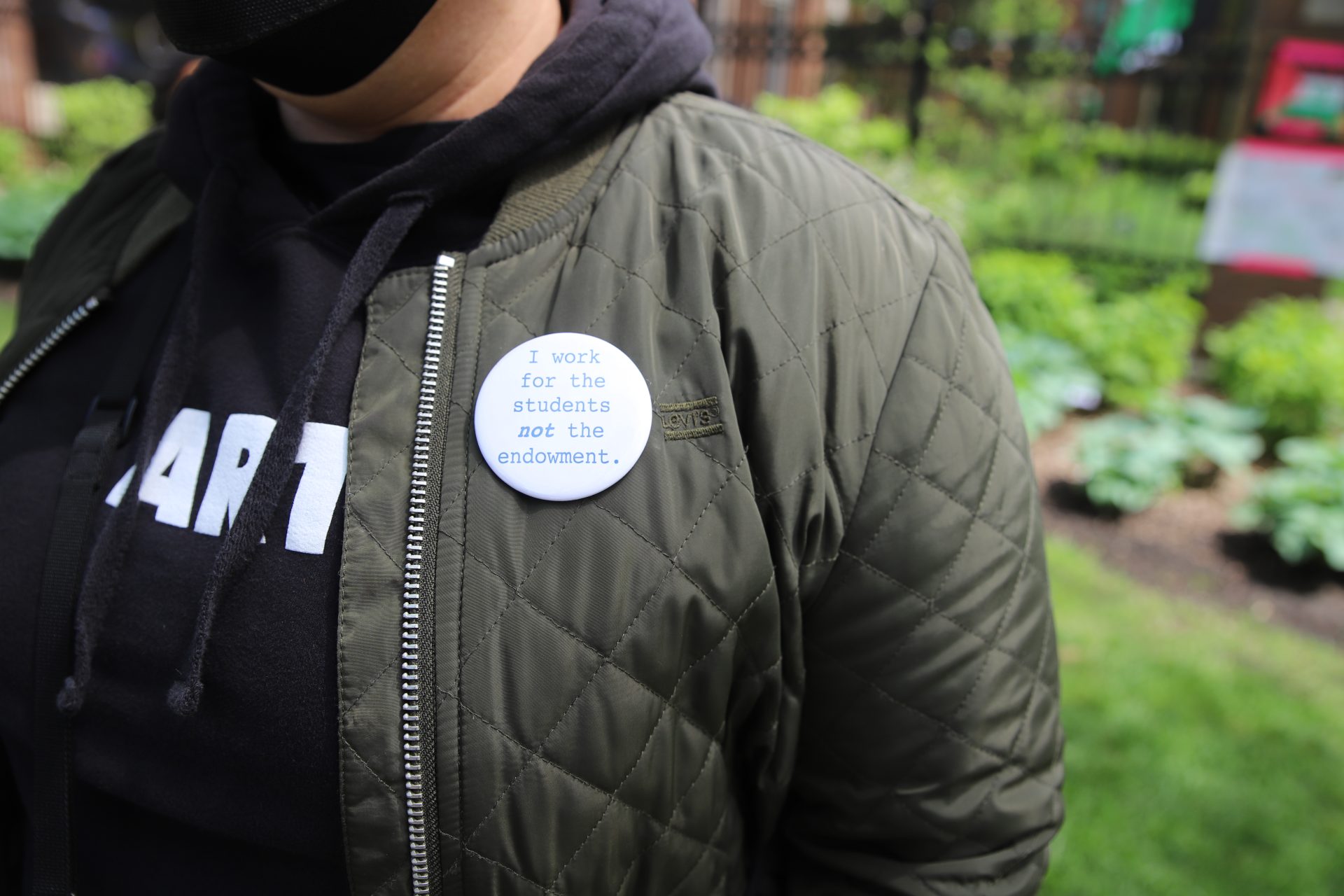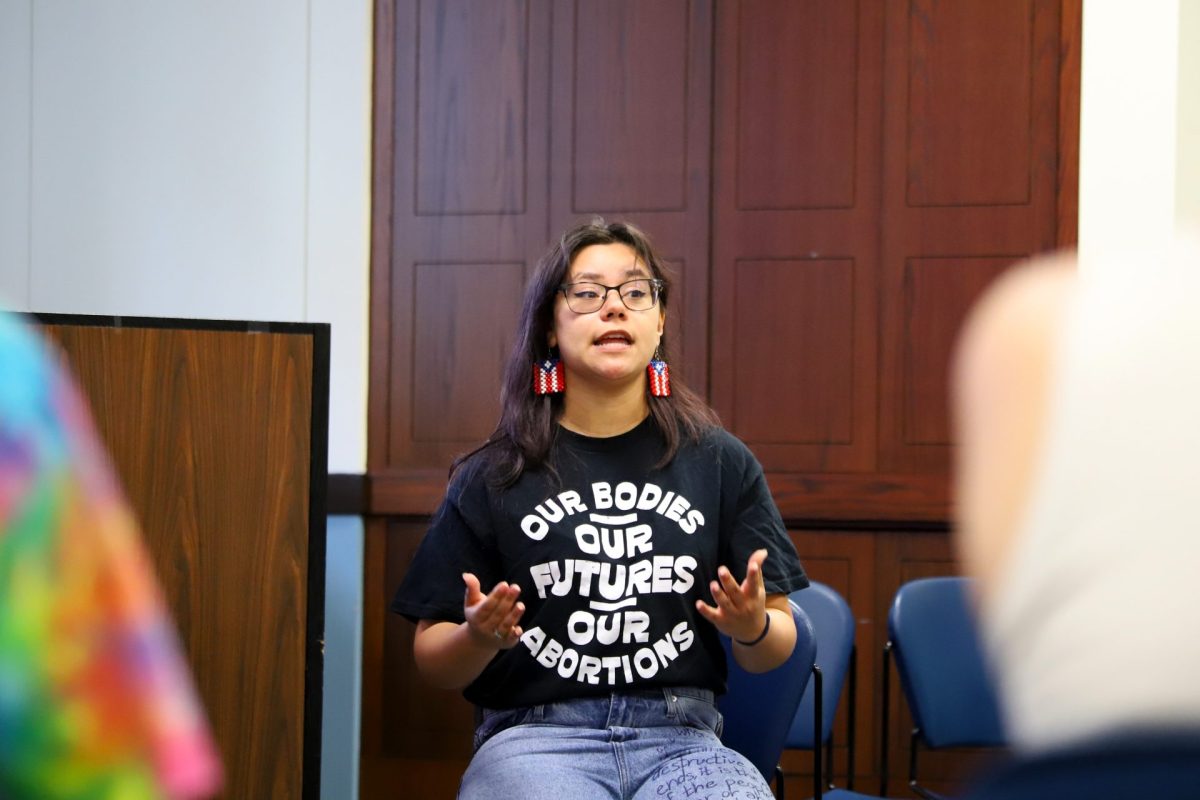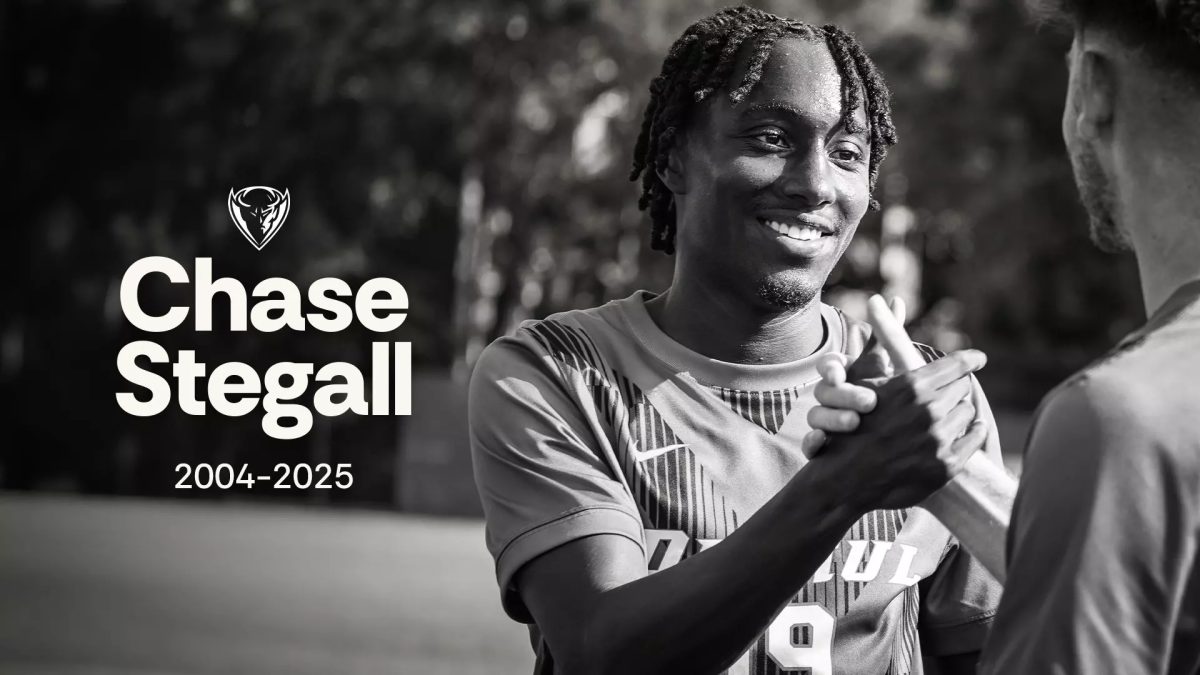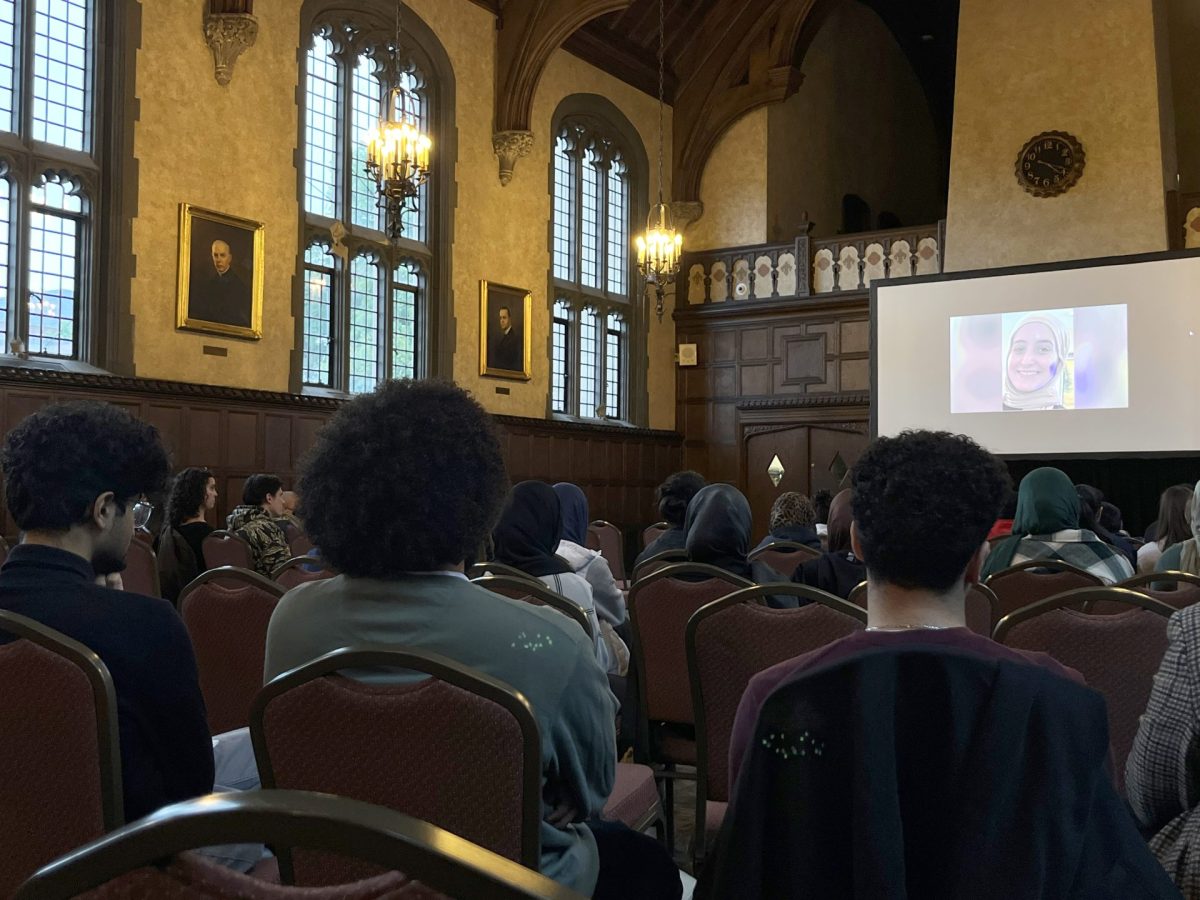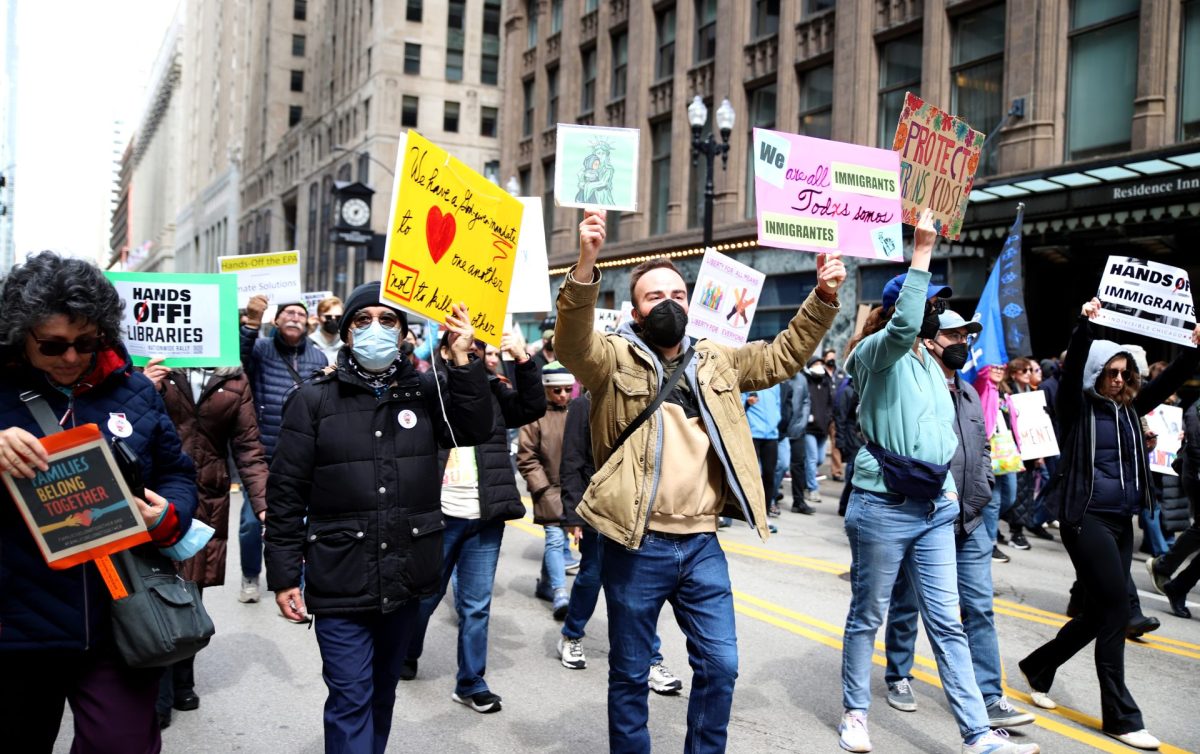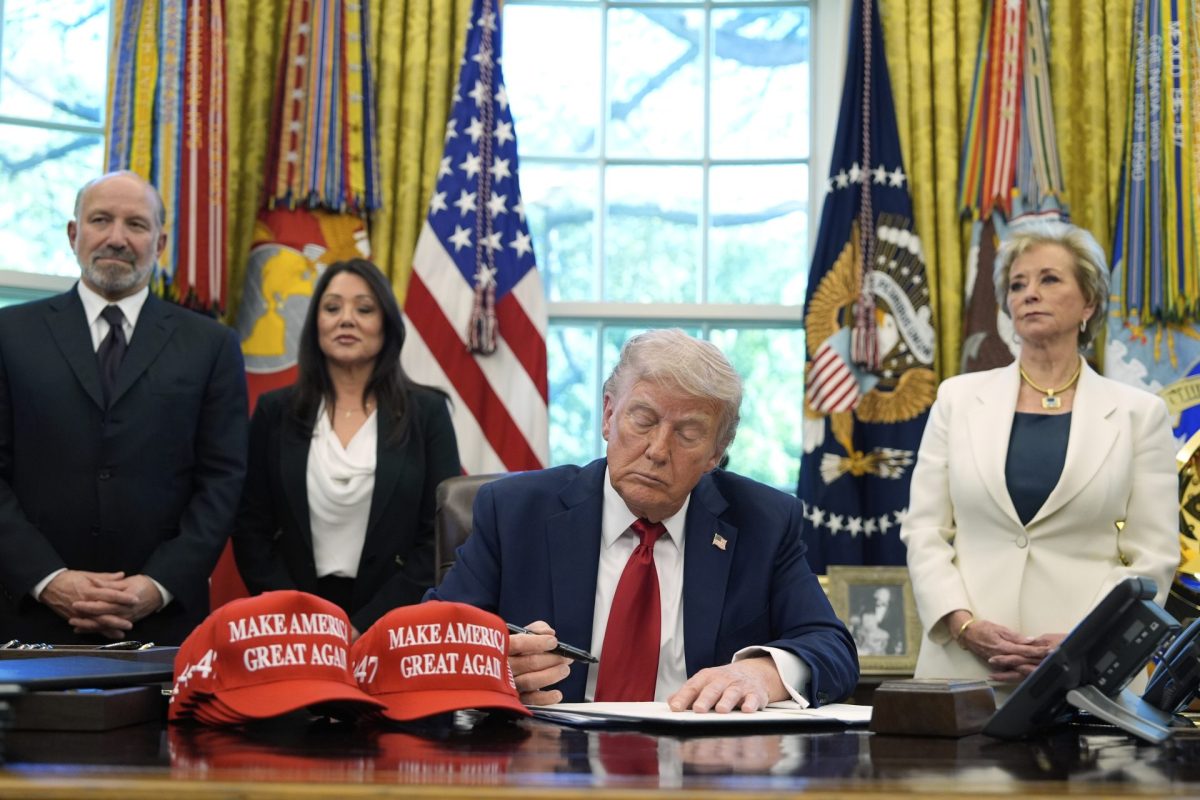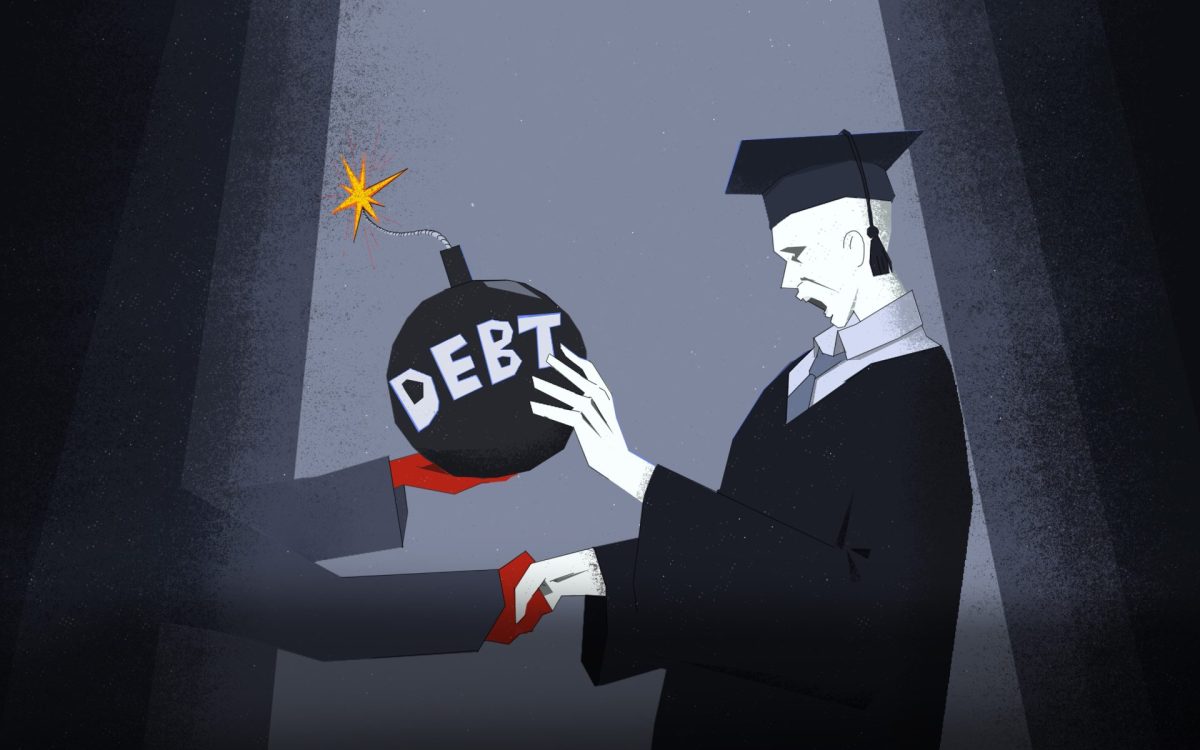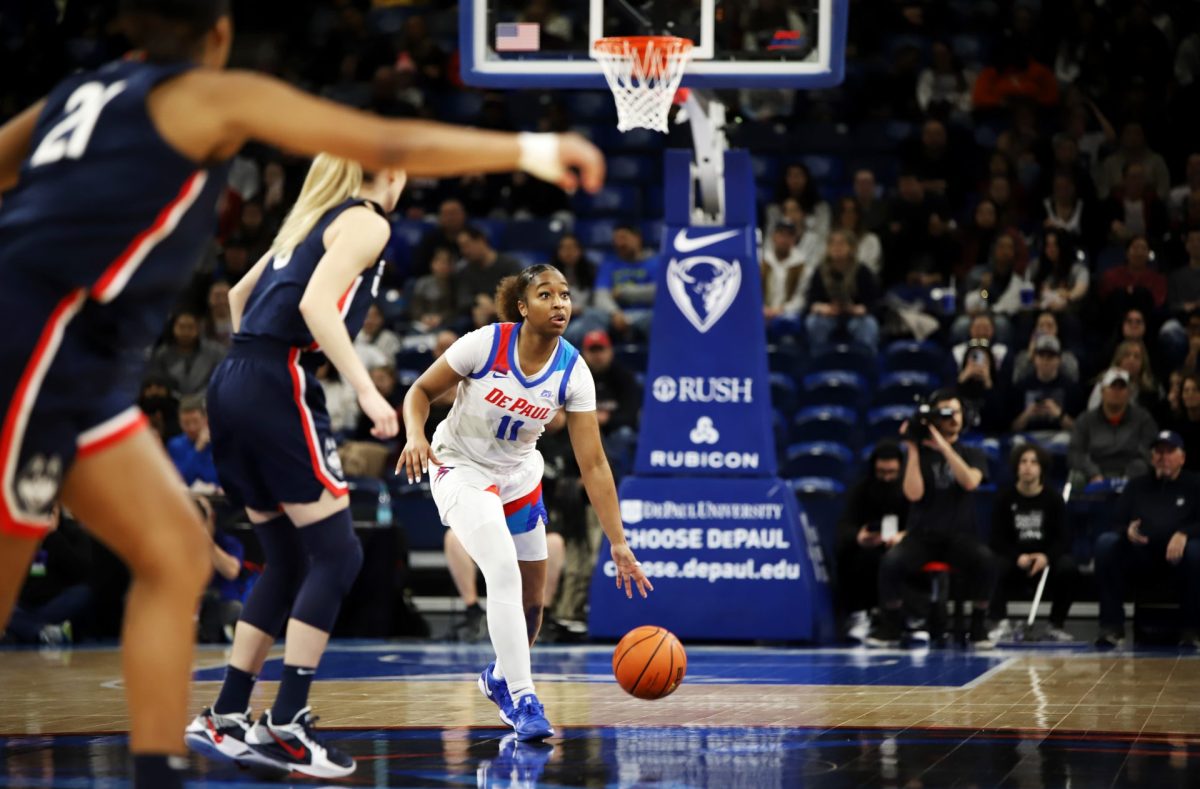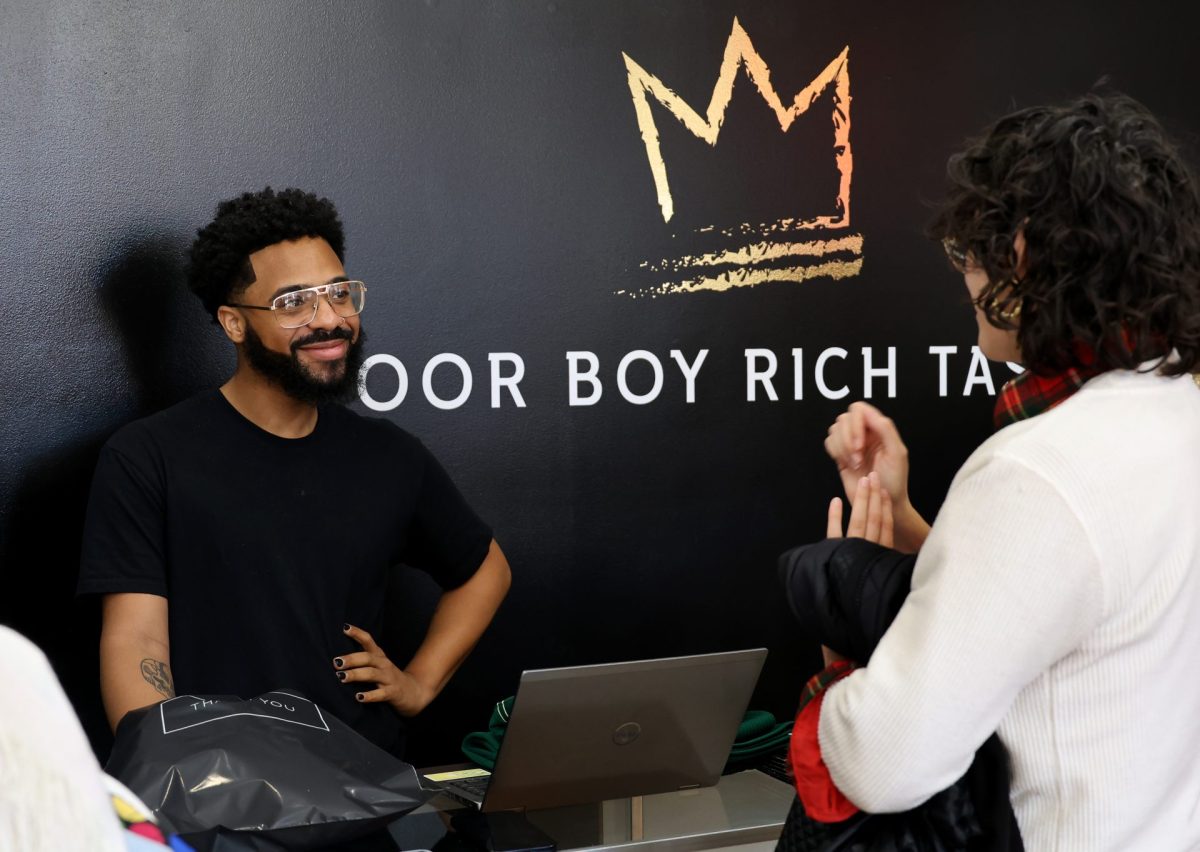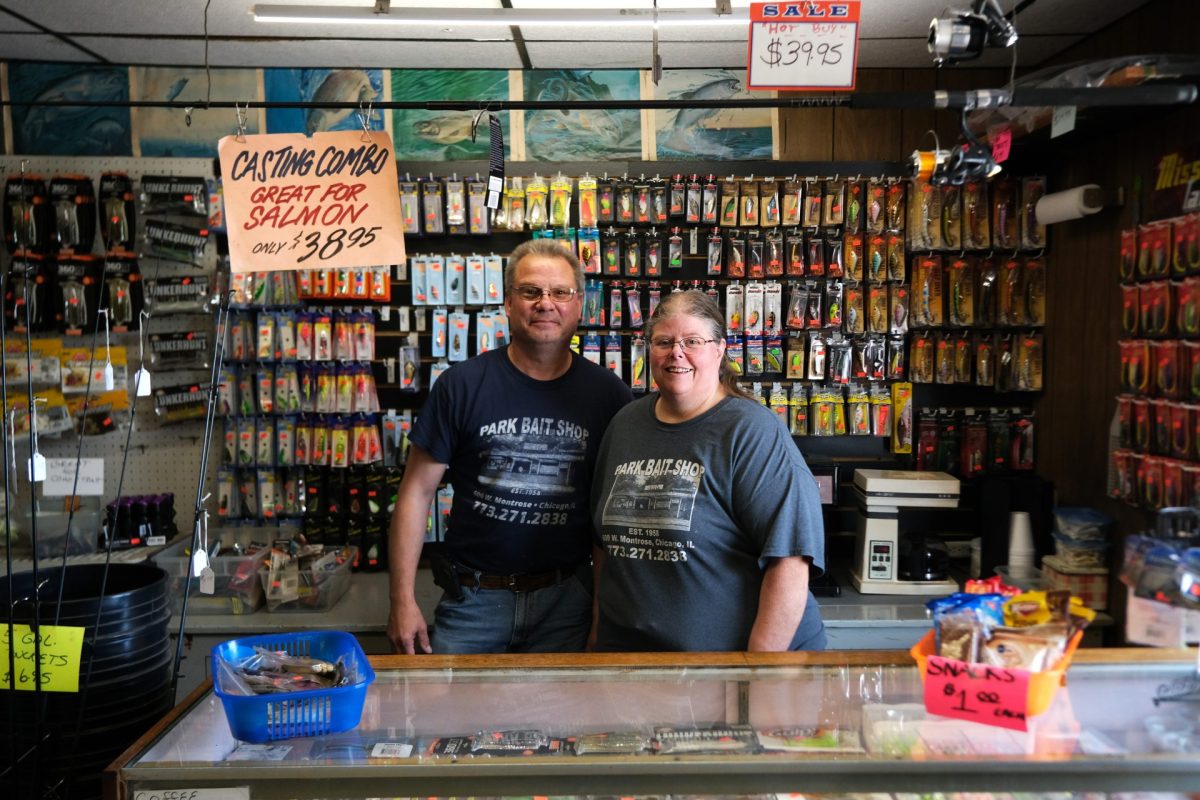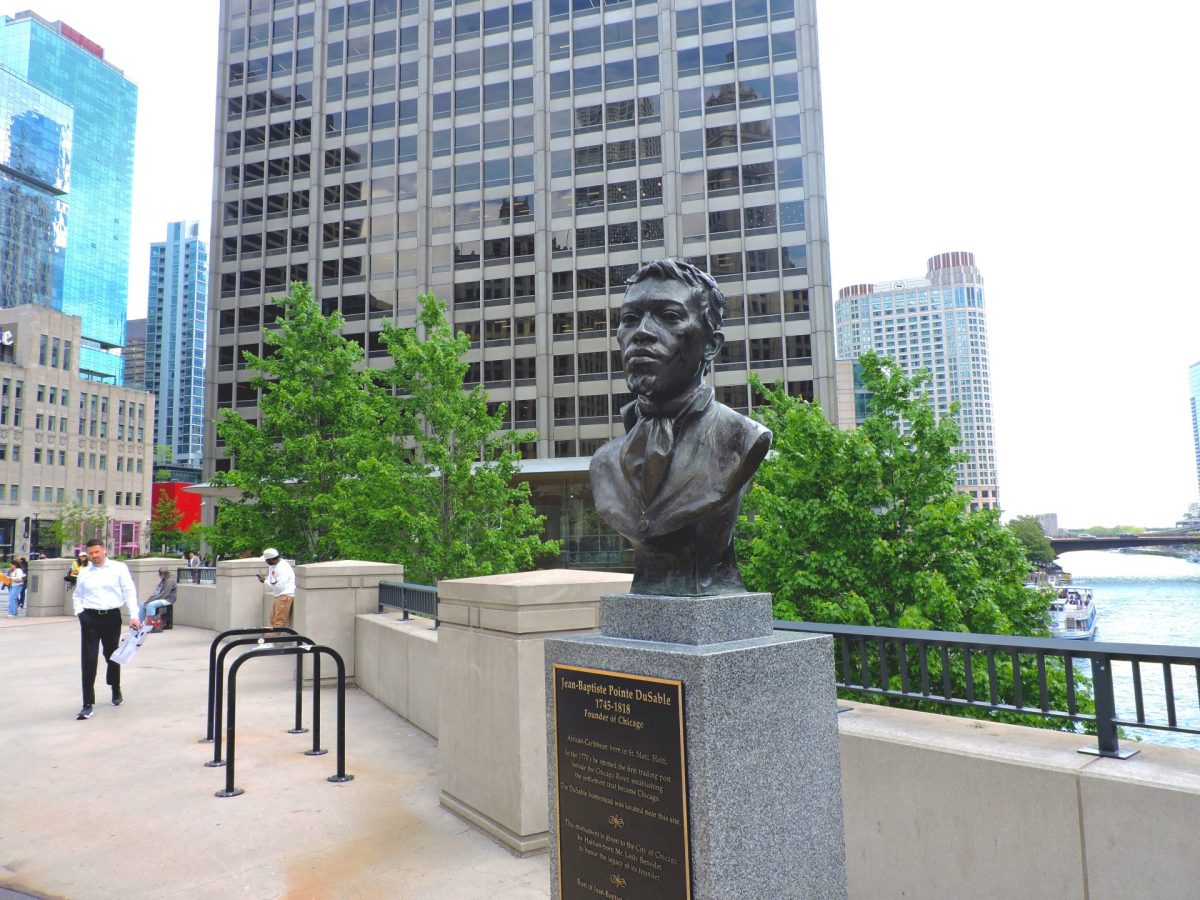Lilly Keller, Editor-in-Chief, contributed to this report.
Laura Kina, a DePaul professor, wears a button on her shirt as she stands near the perimeter of DePaul’s encampment, created recently in solidarity with Gaza. The button reads, “I work for the students, not the endowment.”
Kina, a Vincent DePaul professor for the Art school, critical ethnic studies and global Asian studies, is one of several faculty members who joined students, alumni and Chicago community organizers to support the more than 100 demonstrators in the Quad encampment, which entered its third day Thursday, May 2.
The encampment continues as DePaul’s Divestment Coalition and Students for Justice in Palestine (SJP) demand that the university “acknowledge the ongoing genocide and scholasticide in Gaza” and “Divest from companies that advance Palestinian suffering and profit off the occupation,” among other demands.
Kina said she admires the student protestors along with their organizational efforts.
“I’m very, very impressed with the student organizers…. It’s really impressive how peaceful it is and the sense of community here,” Kina said.
Jay Baglia, a professor in the College of Communication and member of faculty council, attended a meeting on Wednesday, May 1, where DePaul President Robert L. Manuel addressed the ongoing encampment.
“His message is that he would like to maintain dialogue with the student groups who are protesting,” Baglia said. “It would be ideal if all interested parties could come to the table and agree on a peaceful solution.”
Other faculty members have been coming to support their students who are demonstrating during midterm week.
Katy Arnold, a political science professor, also voiced her support for the student protestors and the various demands they are pushing through the encampment.
Arnold says that not only does the encampment show a sense of community, but it helps create a space to talk about important issues.
Arnold also complimented the DePaul administration for its response so far. She believes they have prevented a possible escalation by not sending in the Chicago Police Department.
“They’re opening up a space for critical dialogue about a very asymmetrical humanitarian situation that has been inadequately covered by the major newspapers,” Arnold said. “They are fostering dialogue with other student groups, which I think might not be recognized very much.”
The organizers of the encampment have received support from other campus groups such as United DePaul and DePaul’s Planned Parenthood General Action (PPGA) group.
The various social action groups have continuously stated their shared interests and solidarity, as seen during Wednesday’s United DePaul strike. All groups also called for an end to DePaul’s “condom ban,” which is one of DePaul PPGA’s main objectives.
These overlapping interests also present an opportunity for the university to take immediate action to the various demands from these groups, according to Kina.
She says that even though students are asking for “large things,” they also demand changes that are “very attainable, like tomorrow, such as ending the ban on condoms.”
“We’re supposed to care about students, and their health matters,” Kina said.
Police intervention in campus protests has been seen throughout the country in the recent week, with heavy police involvement, including arrests, at encampments at Columbia University and the University of California, Los Angeles.
Student protest has long been an instrument of resistance at universities throughout the country. Various faculty members referenced other movements that have happened on DePaul’s campus, which they said could serve as guidance for the “DePaul Liberated Zone.”
Kina noted protests she saw in 2016, following controversial British commentator Milo Yiannopoulos’ campus visit, which included a “heavy police presence.” She said she was grateful there has been no “huge Chicago police presence” at the DePaul encampment, so far.
However, not all faculty perceive the encampment the same.
Craig Klugman, a Vincent de Paul Professor of Bioethics & Health Humanities, said that his top priority as an educator is ensuring student safety, a task made increasingly challenging since the encampment’s establishment.
“As a Jewish faculty member, it’s heartbreaking and it’s terrifying,” Klugman said. “I am spending time at the Jewish Life Center with our students … and I’m mostly listening to them and hearing their stories of people lunging at them as they walk past the encampment to get to their classes, yelling at them if they’re wearing jewelry, or a skullcap or anything that would signify them as being Jewish.”
Despite maintaining a secular environment in his classroom, Klugman said he worried about DePaul’s Jewish students feeling marginalized or “like the faculty are against them.”
“We need to prevent people from getting hurt,” Klugman said. “… This is a pretty small percent of our student population (in the encampment), so we need to remember that we have to take care of everyone and not just the small, very vocal minority.”
Scott Hibbard, chair of DePaul’s political science department, said that the “heavy-handed response” at universities such as Columbia is “doing more harm than good.”
Hibbard agreed that DePaul’s actions, both by students and administration, have been “off to a good start,” noting, “If we can keep this from escalating, I think it will serve everyone’s interests.”
In email statements, DePaul’s administrators have stated that the encampment violates various university policies but also said they will continue to let the encampment stay on the Quad, if protests remain peaceful.
“The university has, on the one hand, said they’re negotiating with (the protestors), but they do keep saying that they’re violating rules…,” Arnold said. “They’re giving a warning to everyone.”
Baglia, the faculty council member, said that “faculty wants to be involved in negotiations” because of what he identifies as a closer relationship with students than administration may have.
Although Arnold respects the university’s response in not sending in higher authorities, she says there is still an inadequate relationship between the administration and the students as the encampment continues.
“(The administration) treats them as if they’re clients who can also be rejected or turned down…,” Arnold said. “Students feel like (DePaul) is their home and they have a right to do this.”
But, some faculty members, such as Baglia, are complimentary of President Manuel’s approach.
“In this president, it seems he wants to hear more from the faculty and more from the students,” Baglia said.
As the encampment continues despite rainy weather, faculty remains involved in protests and negotiations with administration.
“There feels like there is a lot of respect here,” Kina said.


